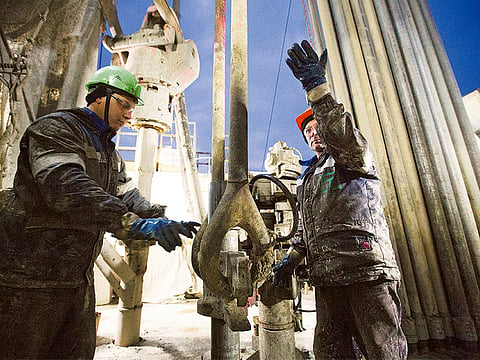Strict implementation is key to success of Opec deal
Libya and Nigeria both pose a challenge in production hike if there is stability

Abu Dhabi: Strict compliance to output cuts and cooperation from non-Opec members will play a key role in the successful implementation of the Opec deal that was reached between the member countries in Vienna last week, analysts said.
The fourteen member group reached an agreement to cut production by 1.2 million barrels per day on November 30. Non-Opec countries like Russia too will be slashing output by 600,000 barrels per day with Russia contributing 300,000 per day.
This is the first time since the financial crisis in 2008 that Opec countries came together to slash output to stabilise oil prices.
Opec member countries are expected to meet non-Opec countries in the coming days to chalk out details on the implementation of the deal. Oman on Sunday said they would attend the meet on December 10 in Vienna.
“The first coordinated cut to production in eight years helped trigger a major rally in oil, but also among oil exploration and production companies finally seeing light at the end of tunnel,” said Ole Hansen, head of commodity strategy at Saxo Bank.
Initial euphoria
There will be question marks on how this deal will be implemented as Opec has a poor history of compliance, and that may come back to haunt the producers once the initial euphoria and position adjustments have run their course, he said.
“Another question that remains is, just how many of the 600,000 non-Opec barrels will be removed from the market? Russia has never before supported a concerted production cut, and the market may adopt a “show-me-the-barrels-first” approach before believing it will happen. “
Libya and Nigeria also expected to pose a challenge. Being exempt from the deal, both countries have the potential, stability permitting, of increasing production by more than 500,000 barrels per day over the coming months.
Any increase from these two countries will naturally dilute the impact of the agreed production cuts, Hansen added.
“Opec has by their action most likely managed to establish a floor under the market, potentially around $45 (Dh165) per barrel, but if $70 per barrel is the target they may well have to wait a long time.”
Oil prices not expected to rally much
Meanwhile, oil price is not expected to rally much beyond $55 per barrel in the short term unless there is some kind of disturbance to the oil supplies like civil war flaring up again in Libya or renewed round of militancy attacks in Libya.
“The future prices have not moved up beyond $55 level after the deal. It doesn’t suggest any kind of crazy rally to about $60 and beyond at this stage,” said Edward Bell, commodity analyst at Emirates NBD.
“If there is some kind of an event for instance civil war in Libya flaring up again or there was renewed round of militancy attacks in Nigeria that makes market tighter to spike up oil prices.”
Brent, the global benchmark is currently trading at $54.46 per barrel and the US crude West Texas Intermediate at $51.68 per barrel.
Oil traded less than $50 per barrel before the crucial Opec meeting in Vienna. It rose more than eight per cent as news emerged of a deal between member countries to slash production.
Sign up for the Daily Briefing
Get the latest news and updates straight to your inbox



